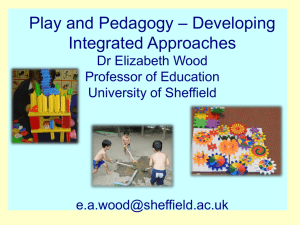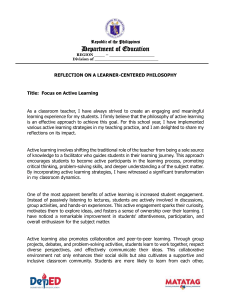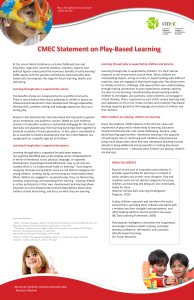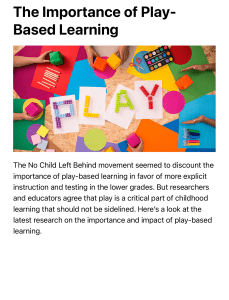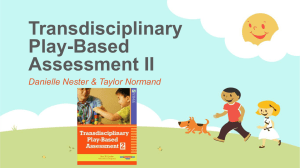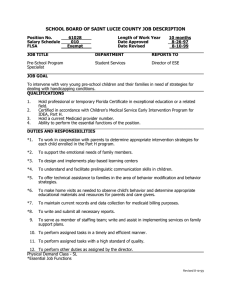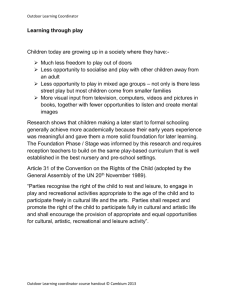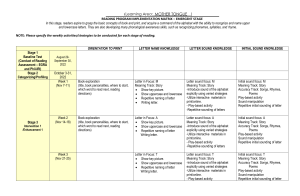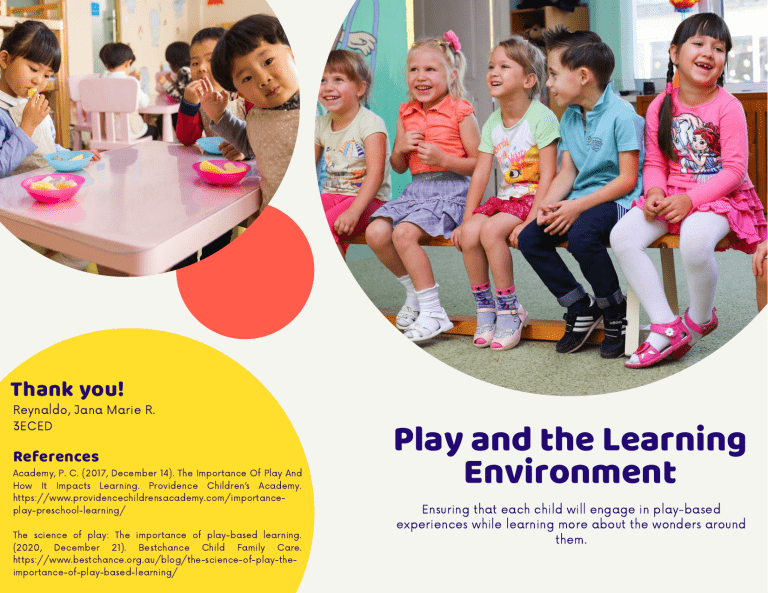
Thank you! Reynaldo, Jana Marie R. 3ECED References Academy, P. C. (2017, December 14). The Importance Of Play And How It Impacts Learning. Providence Children’s Academy. https://www.providencechildrensacademy.com/importanceplay-preschool-learning/ The science of play: The importance of play-based learning. (2020, December 21). Bestchance Child Family Care. https://www.bestchance.org.au/blog/the-science-of-play-theimportance-of-play-based-learning/ Play and the Learning Environment Ensuring that each child will engage in play-based experiences while learning more about the wonders around them. First, what is play-based learning? Children have various ways of maintaining the knowledge they attain inside and outside the classroom. One way for a child to learn is through playing. It is defined by the Early Years Learning Framework as a context for learning wherein students create a meaning of their social world through their interactions with people, objects and other things. Play-based learning is vital for children's learning as it encourages them to venture out and explore their interests. At the same time, play-based learning helps in developing their creativity and literacy skills while interacting with other children What do we need for an effective learning environment? SELF- DIRECTION Children decides on what happens to their activity with the supervision of the teacher or an adult. UNSTRUCTURED EXPLORATION Allow the child to explore their interests and other options by themselves FUN Play must be enjoyable for the child instead of draining. PROCESS-ORIENTED There should be no expected outcome from the child as this is unstructured and based on the child's direction. Reflection I was exposed to the term of Play-Based learning when I was still in First Year with the subject EDUC 7013 under Ma'am Vicente. At first, I thought it was somehow unhelpful for a child based on my perspective that play is just for fun. However, as I delved into the subject and the following terms, I realized that play is meaningful for a child as it can aid in the child's holistic development. Play-based learning allows the literacy and language development of the child since there are conversing with other people during the interaction. Play also allows them to converse with themselves, narrate the actions of their toys and recite their lines during dramatic play. While having fun while learning, it also improves their motor skills. Since they are climbing, throwing, running and other activities, the students are enhancing their fine and gross motor skills, balance, and eye-hand coordination. Their imagination is also sparked during play activities that hold significance into their growth as creative adults in the future. The subject and the article made me realize how beneficial play is for children as it becomes a stress-free environment for them and breaks the idea that learning only occurs inside the classroom. As I look into how I was when I was a child, play-based learning shaped me in who I am today. I was able to learn new things while I was playing not just academically-related, but also related to the world we live in. I hope that as we transition or improve on how we utilize 21st century learning, we get to emphasize the importance of play-based learning and how it greatly and positively affects a child's holistic and social development.
